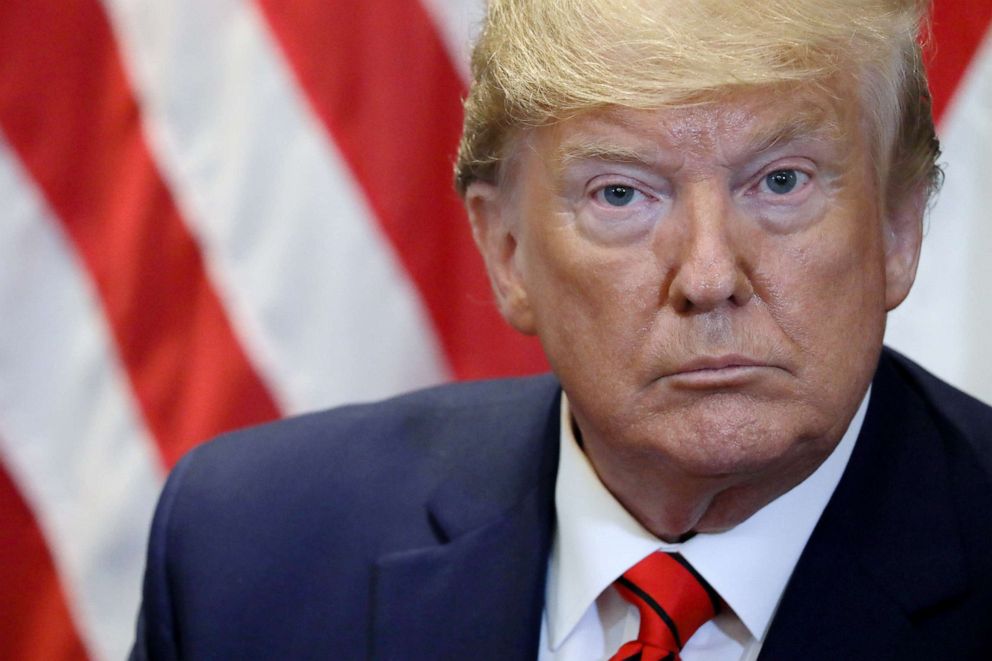Speaker Pelosi has called for an impeachment inquiry. What happens next?
The impeachment inquiry announcement is a momentous development in Washington.
The announcement from House Speaker Nancy Pelosi that the House will launch an official impeachment inquiry into President Donald Trump is a momentous development in Washington.
The president called it "presidential harassment" on Twitter. But it's about possible impeachment being much more likely -- and it's much more serious.
TIPPING POINT
The administration's efforts to suppress a whistle-blower complaint about the president -- and subsequent revelations that Trump ordered military aid for Ukraine withheld days before talking to that country’s president about investigating his political rival Joe Biden and his son Hunter -- have sent once-hesitant Democrats in Washington to take a historic step.
THE NUMBERS
Look at the numbers. The Ukraine story broke the Democratic levy. Nearly 50 Democratic members have joined calls to start an impeachment inquiry since the news broke. Nearly 80% of the Democratic caucus wants an impeachment inquiry. The ABC News count is 182 Democrats and, with Justin Amash, who recently left the Republican party it's 183 members of Congress in all.
HOW WILL THIS WORK?
The House committees investigating various allegations of Trump wrongdoing will keep holding hearings. But Pelosi said they will do so now under the one umbrella of the official impeachment inquiry. As of now, there is no word of creating a new, select committee. If that happens, the impeachment issue would be taken away from House Judiciary Chairman Jerry Nadler. A simple majority in the House is needed to impeach after the House Judiciary passes articles of impeachment. Pelosi likely has the votes. But two-thirds of the Senate is needed to convict and remove Trump from office. As it stands now, with Republicans in control of the Senate, that is not likely to happen.

POLITICAL SIGNIFICANCE
And that's why this has been such a tough decision for Pelosi. She knows this likely won't result in forcing the president out of the White House. And being attacked by Democrats could give the president something to run on. For instance, he’s said about the prospect of impeachment: "They say it's a positive for me."
He loves a foil. That said, some Democrats might argue that forcing Trump to run for reelection amid an impeachment inquiry would hurt his chances and inspire the Democratic base. Pelosi said her thinking on this has shifted. She says she now sees this as a matter of national security.
SO HOW COULD IT END UP?
No president has ever been impeached and subsequently removed from office. Two presidents, Andrew Johnson and Bill Clinton have been impeached and both were acquitted by the Senate.
If the unexpected were to happen and Trump removed from office, he could run again.

WHAT HAPPENS NEXT THIS WEEK
The White House said it will release an unredacted transcript of the call on Wednesday. Also on Wednesday, Trump is scheduled to meet with the president of Ukraine at the United Nations and Trump will hold a news conference.
On Thursday, the acting Director of National Intelligence Joseph Maguire is supposed to testify in public before the House Intelligence Committee and before the Senate Intelligence Committee in private. That could be a game-changer.
TIMELINE
So how long could it take for an impeachment process to play out? History is our best guide at this point. It took the House roughly two months to impeach Clinton, from the day it started an inquiry -- Oct. 8, 1999 -- to the day the House sent articles of impeachment to the Senate. It took the Senate roughly a month to acquit.
By this timeline, we could be looking at a process lasting three months, but there are lots of variables, so this is just an estimate. Maybe the biggest variable of all is that this likely will be pushed into an election year.



